How To Care For Pocket Pets: Rabbits, Guinea Pigs, Ferrets, Rats and Mice
“Pocket pets” are those small pets that aren’t cats or dogs.
They include pint-sized animals such as rabbits, mice, rats, ferrets and guinea pigs.
These unusual pets require special care that is highly specific to their species and not at all like cats and dogs.
If you are you thinking of introducing a pocket pet to your family or you already own one of these little critters then this tutorial will help you to understand what care they need.
In this special episode of Ask The Vet with Dr Leigh, we are joined by a special guest Dr Bree Talbot from the Bryon Bay Wildlife Hospital who is an expert in pocket pet health.
If you have a question about your rabbit, ferret, or rat ask them below and we will answer you!
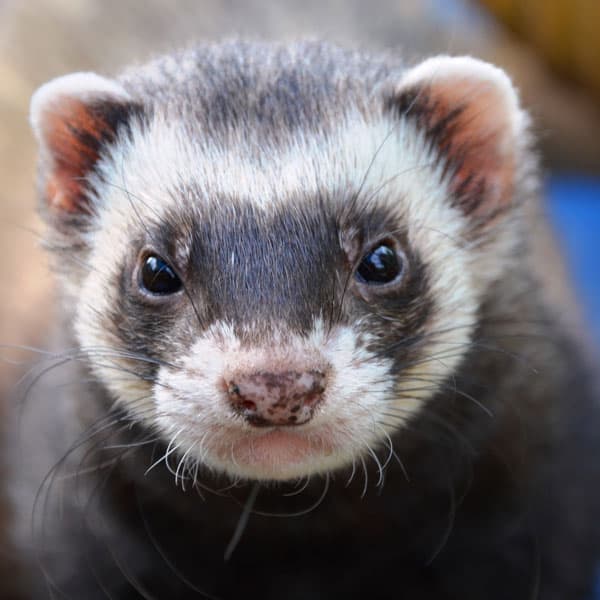
Video Tutorial With Dr Leigh & Dr Bree
If you prefer to read here is the discussion transcribed:
How To Care For Guinea Pigs
Dr Leigh:
What’s The Most Important Thing You Want Us To Know About Guinea Pigs?
Dr Bree: Similarly, like with rabbits it’s all about diet for these guys. Guinea pigs need to have hay to make sure their tummies work properly and they also need to have a constant supply of vitamin C because these guys can’t make their own vitamin C.
Vitamin C is is really important for general health also for skin. You’ve probably heard of people getting scurvy, well guinea pigs can get scurvy too.
It’s really important that you do your research of what guinea pigs can eat and what they need to eat and then be providing it on a regular basis. Feed items such as:
- grass hay,
- dark green leafy vegetables and
- vegetables and fruits that are high in vitamin C
That’s the main thing that I want people to know about food and also want people to realise that guinea pigs get dental disease if they’re not fed the right food and that can cause a lot of problems.
How To Prevent Dental Disease In Your Guinea Pig
Dr Leigh: Ahhh, so should you be visiting the vet every year for your guinea pig to have their teeth cleaned and trimmed maybe?
Dr Bree: Yes. With rabbits, guinea pigs, rats and mice we do recommend that you take them to the vets every year to get a health check and we will check their teeth in that exam.
Now if they are eating the correct diet and they’ve got great genes then we won’t need to trim their teeth.
But if they’ve been born with bad teeth or maybe a misaligned jaw and they’re not fed the right food then we might have to give them a dental procedure and trim their teeth.
The important thing for people to know is if your guinea pig does have dental disease if they do need their teeth trimming, it’s very unlikely that we can cure them of this dental problem.
Dentistry becomes more of a management issue so if they have dental disease and have changes in their teeth and roots we can’t necessarily cure it so we have to manage it and try and make their mouths as good as possible to keep them as comfortable for as long as possible.
What’s A Good Food Treat For A Guinea Pig?
Dr Leigh: Excellent, so what’s a good treat for a guinea pig? I want to know what they can be fed a little bit of when they’re being good. With rabbits it was the carrot, is it the same for guinea pigs?
Dr Bree: Yes guinea pigs love to eat carrot so you can give them carrot otherwise they love coriander too. They love to have a great big smorgasbord of vegetables and you can give them some strawberries.
I give strawberries as a treat and a little bit of kiwi fruit if they like that, a little bit of banana, but again these are all treats. They’re all quite sugary so you only want to give a small amount at any one time.
What Pellets Can I Feed My Guinea Pig?
Dr Leigh: So rabbits and guinea pigs are similar. What about feeding pellets to them?
I know a lot of people go to the pet shop and buy a big bag of pellets.
Dr Bree: I have to talk to clients regularly about feeding pellets to rabbits and guinea pigs and even I grew up thinking that pellets were fine.
But the more that we’ve learnt about rabbit and guinea pig nutrition and their digestive systems the more that we have realised that pellets are not the best food for them.
Pellets are great as a supplement and in small amounts but not as the main part of their diet. Definitely not those pellet mixes that you see in supermarkets.
If you look at the pellet mixes or more commonly known as stud mixes, you’ll see that they have quite a bit of corn in them, they’ll have some sunflower seeds and quite often the pellet will have molasses mixed through. That’s because both guinea pigs and rabbits both have a sweet tooth.
They love these sweet and oily foods but they’re not good for them whatsoever so we want to try and stay away from those.
If you do want to feed a pellet mix you want to stick to the brands that actually have a nutritional analysis on the back and you only want to feed a small amount as a supplement to the main part of the diet which will be hay and vegetables.
Dr Leigh: So when you say feed the pellet as a supplement are you talking 10% of the diet or are we talking 20%?
Dr Bree: We’re talking maybe 5% maximum of their diet
Dr Leigh: So you’re only feeding them a really small amount of pellets?
Dr Bree: When we feed pellets to these guys or to any sort of herbivore animal we actually change the way that their jaw works so it’s not working in a normal plane.
When they’re eating grass and hay their mouth is working in a lateral sort of movement and that’s how we want their teeth to work because that’s how it wears their teeth out properly and keeps them nice and healthy.
But when we give them a pellet they actually work in a vertical action, so they’re chomping up and down and that’s how you get uneven wear of their teeth.
It’s important to only feed a small amount of pellet, unless there’s a medical reason that your vet will tell you to increase it. There’s some people that actually don’t give any pellets for their rabbits or guinea pigs.
What Kind Of Cage Do We Keep A Guinea Pig In?
Dr Leigh: Can guinea pigs be kept in a similar house as rabbits?
Dr Bree: It’s nearly the same as a rabbit! These guys do need to have lots of areas to run around and move around in.
They’re also quite skittish animals so we want to provide lots of hidey holes for them so we want them to go in and snuggle away and feel nice and secure.
If they want to get out and they’re a little bit more of an adventurous type of animal then allow them to run around.
We also want to make sure that they’re protected from the elements too.
They need a nice big cage, freshwater, hay and areas to go to the toilet which is separate to an area for them to sleep. I’d then make them little hidey holes and places to hide.
How To Care For Ferrets
Dr Leigh:
What Is The Most Important Thing You Want Us To Know About Ferrets?
Dr Bree: That they are mischievous little animals that like to get into all sorts of trouble!
Many times we have had people come in that say they’ve lost ear plugs and things around the house. The ferrets have decided it’s their treasure and they’re gone and hidden it!
Dr Leigh: They haven’t eaten the treasures then?
Dr Bree: Sometimes they hide them sometimes they eat the treasures! If they’ve actually eaten the treasures then we have to go in and surgically go and find them..
Dr Leigh: okay so does that mean that you need a different type of housing for ferrets? Is it safe to keep them out all the time or is it even more important to have a special cage for them?
Dr Bree: It’s very important that you have a ferret proof house and a ferret proof cage. We recommend that when you do have them out, which we do encourage so they have a chance to play and they do need that mental stimulation.
When they are out, you’re watching them because ferrets like to get up and underneath the couch, they’re really good at getting up inside the chair, so when people go and then open up the recliners the ferret is actually in there in amongst all the mechanics of the springs.
You’re going to have to make sure that you know where they are all times it’s important that you’re watching them so they don’t come to any harm.
The ferret cage needs to be big enough to have a designated sleeping area and a designated the toilet and an area that can eat that is not close to their toileting area.
The cage needs to be secure so that they can’t escape.
What Food Do Ferrets Eat?
Dr Leigh: What special food do ferrets need? What are the do’s and don’ts of feeding ferrets?
Dr Bree: Ferrets are what we call obligate carnivores and so their body is made to eat meat and meat byproducts. They can only handle some small amounts of carbohydrates and fibre and so we want to find the diet that is high in animal fats, animal protein and very low in carbohydrates and fiber.
Your organ meats, muscle as well as a good quality pellet food as a supplement are the best foods for ferrets.
There are some people that will feed just a pure raw diet or a whole-prey diet to ferrets and then there’s some people that will feed that, but in addition to a good quality ferret kibble or a good quality kitten kibble.
It just depends on what your beliefs are, it divides a lot of people when we talk about a ferret diet.
The main thing no matter what way you wish to feed them, is to make sure that you’re trying to cover all bases of giving them the meat protein they need.
We don’t want to feed them just plant things or vegetables. They’re not going to eat those and they’re not good for their belly, their bellies just can’t handle that food.
Some people will feed ferrets prey foods, so some people will actually buy them little mice to eat or even go to the butcher and get a rabbit’s leg to feed them and then they’ll give them a good quality for the cat food or a good quality ferret food in addition to it.
Dr Leigh: can they have cooked meat and do we have any concerns about feeding them raw? Do we have to worm them more often or do we have to handle the raw meat in a special way?
Dr Bree: Well it’s always good to buy human grades meat and you don’t want to purchase the offal from pet shops because we don’t know if it has been treated with anything, or what grade it is or if it contains preservatives.
Because ferrets can get helicobacter and Campylobacter they can suffer from tummy upsets if the quality of meat isn’t good.
Generally if you get a good quality raw organ you need to freeze it to kill off some of the potential parasites that might have infected the meat.
What Vaccinations Do Ferrets Need?
Dr Leigh: What about vaccinating ferrets is that something that you recommend?
Dr Bree: Ferrets need to be vaccinated against distemper virus ad that is a fatal disease. Luckily we don’t see a lot of distemper in Australia and that’s because we do vaccinate.
We do recommend that ferret kits get vaccinated. It’s kind of like a dog and a cat, they get their initial booster vaccinations and then we do it every year after that.
The other thing that you do have to think about with ferrets is giving them heartworm prevention. Ferrets can get heartworm just like dogs.
We recommend that you treat them with a monthly preventative such as revolution or advocate for cats. It’s very easy to apply, it’s just on the back of the neck.
Dr Leigh: Okay that’s fantastic, right well should we move on to rats and Mice?
How To Care For Rats and Mice
Dr Leigh: Tell us the most important thing you want us to know about rats and mice?
Respiratory Disease In Rats
Dr Bree: So the most important thing that I want people to know about rats is that unfortunately most of them are going to have respiratory disease.
You are going to need to research about respiratory disease in rats and be prepared to look after your rat that has it, because nine times out of ten rats will get respiratory disease.
Respiratory disease in rats is something that we can’t cure. It’s sort of in them and it’s been bred into them over the years so it’s something that we can’t get rid of.
You need to learn how to manage your rat with respiratory disease and you can do a lot of at home management before you come to the vet.
You’ll be doing sort of multimodal management at home with the medicines that the vets will give you too.
Cancer In Rats And Mice
The other important thing I want you to know about rats and mice is that they are really prone to getting cancer. It is likely that your rat or mouse will get cancer.
The good thing about these tumours, at least in rats is that usually it’s benign, so if we remove the tumour then you’ve got a pretty good chance of it not growing back.
About 20% of cases of cancer in rats are malignant, and in mice, unfortunately, most of them are malignant.
So with an already short lifespan, mice that get cancer have an unfortunately short life.
The other thing is that I want people to know is that rats and mice are great, great pets.
They’ve got such cute personalities. Rat are really fun to have around the house, but they have this really bad stigma about being messy, yucky and dirty when they’re actually really clean animals.
Rats don’t smell and they’re great to have around but they’re not around for long enough with these diseases that they get.
Dr Leigh: How long do rats and mice live for?
You can kind of get two years three years out of a rat so it’s not very long, it’s usually a bit shorter for mice unfortunately.
Although, now that we are learning more and more about them, we’re providing better medical treatment and people are looking after them better we are noticing them live a little bit longer, but it’s not a lot longer unfortunately. Hopefully we’ll get there one day.
Dr Leigh: Do you recommend that people weigh their rats and mice? How are we noticing these cancer lumps without getting to them too late?
Dr Bree: Unfortunately a lot of times owners will only see them when they are big or they will say they’re going to look at it and recheck it in a week or so and then it’s doubled in size.
These cancers can be quite fast growing but the main thing that I think is important as a pet owner for any of these animals is learning what is normal for your animal.
The one thing that I do feel is important is when you get your animal is to give them a really good pat, but when you’re patting them really feel them, and feel underneath their jaw or feel underneath their armpits and between their legs along their tail and on their ears and do that on a regular basis.
Then you might pick up a lump that’s teeny tiny that could be like half a millimeter, but because you’ve been checking your animal regularly you’re going to notice that it’s different and now it’s bigger or different.
You might monitor it for a week but you know exactly where it is. You know how big it was on X day, then when you felt it on another day it was different.
This really helps vets when we’re trying to figure out what it could be in terms of its course and that you know that this is your animal’s normal and now this is what’s not normal.
Knowing what is normal and what is not normal is so important.
It applies to rabbits too, those with dental disease, learning what is normal along the jaw the lumps and bumps of what would be normal for them and then when it changes.
That would be the same for your rats and mice and you must look at those lumps regularly.
How To Recognise Bloat In Rabbits and When To Be Concerned
Dr Leigh: One of the things that I see a lot of rabbits for is when they are suffering from bloat. What are some of the signs that people need to look out for with their rabbit especially rabbits and guinea pigs? When do you know that you absolutely must get to the vet straightaway.?
Dr Bree: If they do have bloat we’ve got to make sure that we figure out whether it’s actually an obstruction or if it’s just a really bad stasis.
With an obstruction it means that there’s no food, liquid or gas that can pass through their intestines. Something is stuck in their tummy blocking food passage versus a stasis where that is where the tummy slows down to a point where nothing is moving.
Nothing is moving because there is something wrong with the peristalsis of the stomach and intestine.
So it’s really important that we figure that out first.
But usually, rabbits and guinea pigs will eat constantly though they might not eat during the night as much because they’re sleeping but they’ll be eating during the day, grazing during the day.
If you ever see that your rabbit or guinea pig hasn’t eaten for longer than four hours, that is something that is abnormal.
Dr Leigh: Not eating for four hours?
Dr Bree: Generally it’s four hours I mean there’s some bunnies that can go a little bit longer because they’ve sort of learnt to from an early age, but if your bunny is a normal bunny that you see just grazing on the grass or the hay and all of a sudden you’re like “I haven’t seen him eating for a couple of hours” then that is definitely not normal.
Then if you see them lying on their sides or they’re shifting weight or rocking because they don’t look comfortable that is something that is abnormal as well.
If their belly looks big then you need to be getting to your vet straightaway. You’re getting in your car driving and calling them saying that you’re bringing a bunny that potentially has an obstruction or has really bad stasis that then could turn into an obstruction if nothing is moving for too long.
Why Does My Ferret Look Depressed
Dr Leigh: One of the things that I often get called about on Your Vet Online is the ferret that collapses and is really kind of wobbly and walking not very well and a lot of times star-gazing.
What do you suggest might be the cause of this behaviour and what can people do if they see this happen with their ferrets?
Dr Bree: So the most common thing that ferrets get that aligns with those clinical signs is a disease called an insulinoma and that is a cancer of the pancreas.
When a ferret gets an insulinoma, the cells in pancreas stop working properly and it results in a really severe decrease in their blood glucose, to the point where they don’t have the energy to really lift their head.
Ferrets with an insulinoma look all wobbly because they don’t have any energy. If you think that your ferret does have an insulinoma call your vet, but in the meantime you can try and put a little bit of honey on their gums to provide them with sugar and a little bit of an energy hit.
It is really important that you get your ferret to the vet straight away so that we can collect some blood to diagnose the problem correctly.
The other disease we have to think about, which unfortunately is quite common in ferrets is cancer. It’s often lymphoma and that’s a totally different ball-game to an insulinoma that we need to discuss with you.
But remember an insulinoma is super, super common and causes the decrease in their blood glucose that makes them really, really woozy.
We need to get that sugar level back up so that they have enough energy for the brain as the brain can’t handle a lack of glucose and we don’t want them to go into a coma.
If it’s bad enough unfortunately sometimes they can pass away before we can treat them.
Dr Leigh: yes it’s one of the questions that I often get called about on Your Vet Online. It’s really important that people with ferrets this and are able to give them honey on their gums and then get them straight into that vet clinic.
Dr Bree: And decrease any external stimulus too much, we don’t want them over excited but you want to make sure that they stay conscious so that we can try and get the treatment as soon as possible.
Dr Leigh: Dr. Bree I don’t know if we’ve got any questions which is a bit of a shame but we’ve had a great chat here and I hope people have found that really interesting, I certainly have!
I’d like to say thank you very much and why don’t you tell us how people can contact you or check you out on Instagram or Facebook?
Dr Bree: I have a Facebook page and it is called Dr Bree and so I put lots of stories up there and pictures of cases detailing what’s been going on in the clinic. I also have an Instagram account that’s also called Dr. Bree!
I like to keep it nice and easy for everyone so that you can find me ask me questions and I’ll try to answer them, although it’s hard. Your Vet Online is the perfect platform to ask veterinary medical questions.
It’s always hard for me when I get people asking me specific medical questions because you always want to see the animal like you do by video or by asking more detailed questions, but I try to answer as many questions as I can.
I love seeing what people are up to and their animals as well so I quite often try and make it interactive!
Dr Leigh: I love keeping an eye on your Instagram page in particular, you have some great stories on there so everyone make sure you check out Dr. Bree’s Instagram and her Facebook page.
If you do have questions you can ask your questions below and we will answer them for you.
Otherwise for a personal consult head over to www.yourvetonline.com.
I’m Dr. Leigh and this is Dr. Bree and thank you very much for listening tonight.

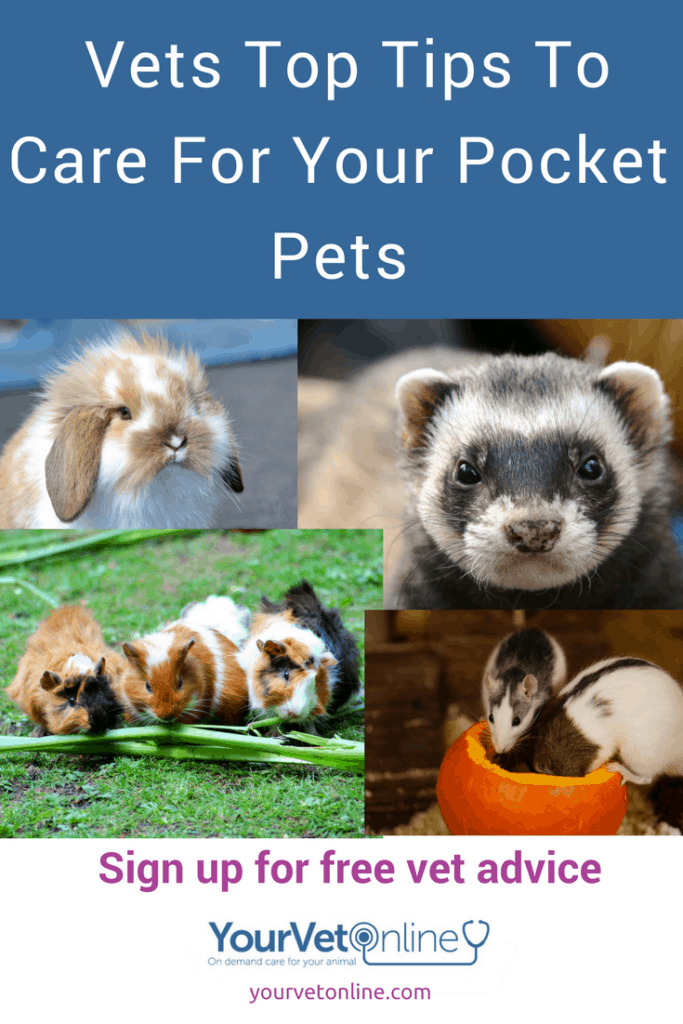
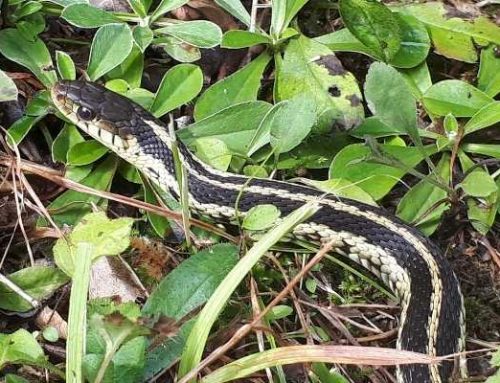
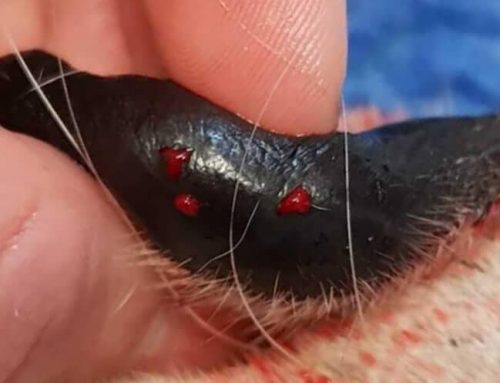
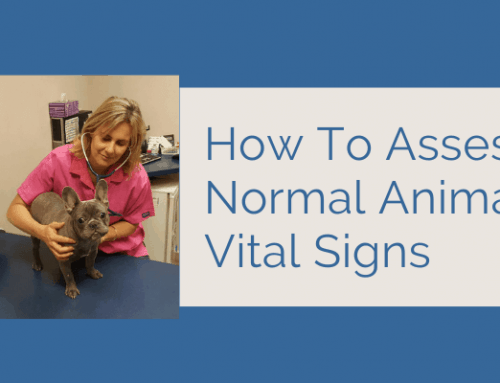
Leave A Comment